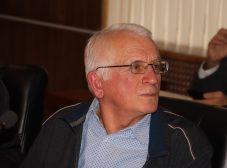
Meeting of the Center for Innovation and High Technology
- January 24, 2023
On January 20, 2023, at the meeting of the Center academician Vladimer Papava delivered a report: “Retroeconomics, i.e. how to overcome technological backwardness”. The type of economy that fosters the functioning of firms (i.e., retrofirms) that are relatively technologically backward in comparison to contemporary global achievements but where, nevertheless, the demand for their products still exists is referred to as a retroeconomy (“retro” being Latin for “back”). The speaker suggests calling the theory of the technological backwardness of an economy retroeconomics. The following factors constitute the establishment of retroecomnpmics: 1. Protection of intellectual property; 2. Monopolization of the economy; 3. The behavior of the leading international competitors; 4. Low level of education; 5. Zombie economy. Of the five factors, the first four contribute to the formation of a retroeconomy in poor and economically less-developed countries while the fifth factor impacts not only the latter but also those economically developed states. A “technology trap” is a condition when a firm favors outdated, less efficient technology, even when the possibility exists to transition to the use of modern technology. The goal of the research is to set out the main reasons why in many (and mostly in poor) countries the economies used obsolete technologies. As a result all these countries have retroeconomy. The process of zombification of economy creates barriers for its technological updating. It was emphasized that the role of the government is very important to resolve the problem of the technological backwardness.










